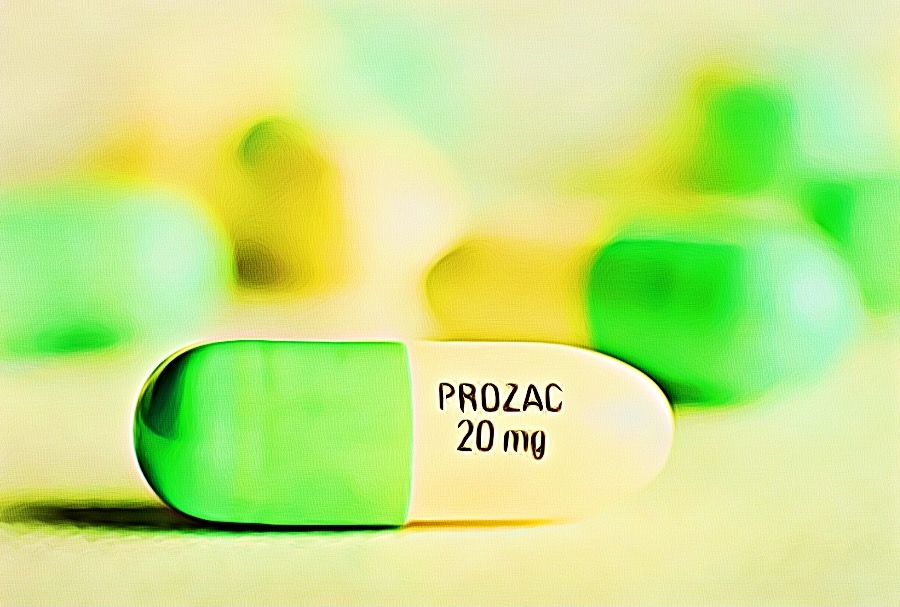You may have heard that Prozac is an addictive drug. But what does that mean, exactly? Is it possible to become addicted to Prozac, and if so, what are the risks?
In this article, we’ll take a closer look at the potential for Prozac addiction and abuse. We’ll also explore the possible side effects of Prozac and what to do if you or someone you know is struggling with an addiction to this medication.
Is Prozac Addictive?
Prozac is the brand name for fluoxetine, a prescription drug There is no clear evidence that Prozac is addictive. However, there is a potential for abuse and dependence on fluoxetine, the active ingredient in Prozac.
Fluoxetine can cause some people to feel euphoric or high. This can lead to misuse or abuse of the drug. Prozac can also cause withdrawal symptoms when people stop taking it suddenly.
Dependence occurs when the body becomes used to the presence of a drug and begins to experience withdrawal symptoms when the drug is no longer present. Withdrawal from Prozac can cause symptoms such as anxiety, insomnia, and flu-like symptoms.
Prozac addiction is rare, but it can occur. Addiction is a more serious condition that is characterized by compulsive drug-seeking behavior and continued use despite negative consequences.
If you or someone you know is struggling with an addiction to Prozac, it’s important to seek professional help. Addiction is a serious condition that can be difficult to overcome without treatment.
What Should I Do If I Think I’m Addicted to Prozac?
If you think you might be addicted to Prozac, it’s important to seek help as soon as possible. Addiction is a serious condition that can have devastating consequences if left untreated.
There are many resources available to help you if you’re struggling with an addiction to Prozac. You can start by talking to your doctor or a mental health professional. They can help you assess your situation and make a plan to get the help you need.
There are also many treatment programs available for Prozac addiction. These programs can provide you with the support and resources you need to recover from addiction.
If you’re struggling with an addiction to Prozac, know that you’re not alone. There are many people who have successfully overcome this condition and gone on to lead happy, healthy lives. With the right help, you can too.
What are the Signs Someone is Abusing Prozac?
The signs of Prozac abuse can vary depending on the person. Some common signs to look for include the following:
• Taking more Prozac than prescribed
• Taking Prozac without a prescription
• Taking Prozac to get high
• Taking Prozac to cope with stress or other problems
• Taking Prozac even though it is causing problems in your life
If you are worried that someone you know is abusing Prozac, it is important to talk to them about it. They may be reluctant to admit that they have a problem, but it is important to get them help.
What is Prozac?
Prozac is the brand name for fluoxetine, a prescription drug used to treat depression, anxiety, and other mental health conditions. Fluoxetine is a type of antidepressant known as a selective serotonin reuptake inhibitor (SSRI).
Prozac is thought to work by increasing serotonin levels, a chemical messenger in the brain that helps regulate mood. Prozac is approved for use in adults and children over the age of 8.
What is Prozac Used For?
Prozac is approved by the FDA for the treatment of major depressive disorder, obsessive-compulsive disorder (OCD), bulimia nervosa, and panic disorder. It is also sometimes used “off-label” for the treatment of other conditions, such as post-traumatic stress disorder (PTSD), premenstrual dysphoric disorder (PMDD), and social anxiety disorder.
Prozac is available in a pill form and is typically taken once daily. It can take several weeks for the full effects of Prozac to be felt.
What Are the Side Effects of Prozac?
Prozac is generally well-tolerated, but it can cause some side effects. Common side effects of Prozac include nausea, diarrhea, dry mouth, and sleepiness.
Prozac can also cause more serious side effects, such as serotonin syndrome and mania. Serotonin syndrome is a potentially life-threatening condition that occurs when there is too much serotonin in the body. Symptoms of serotonin syndrome include high blood pressure, sweating, and confusion.
Mania is a condition that is characterized by an abnormally elevated mood. Symptoms of mania include increased energy, decreased need for sleep, and impulsive or risky behavior.
If you experience any of these side effects, it’s important to talk to your doctor. They may be able to adjust your dose or switch you to a different medication.

How Long Do the Effects of Prozac Use Last?
Prozac has a long half-life, which means that it takes a long time for the drug to be eliminated from the body. The half-life of Prozac is four to six days.
This means that it can take up to two weeks for the effects of Prozac to wear off. In some cases, it may take longer for the drug to be completely eliminated from the body.
If you stop taking Prozac suddenly, you may experience withdrawal symptoms. It’s important to talk to your doctor before you stop taking Prozac. They can help you taper off the drug slowly to avoid withdrawal symptoms.
The withdrawal symptoms of Prozac are different for everyone. However, there are some common symptoms that people experience when they stop taking the drug. These include:
• Anxiety
• Depression
• Fatigue
• Headaches
• Insomnia
• Nausea
• Sweating
• Tremors
• irritability
If you’re planning on stopping Prozac, it’s important to talk to your doctor first. They can help you taper off the drug slowly to minimize the risk of withdrawal symptoms.
How Long Does Prozac Withdrawal Last?
The length of time that Prozac withdrawal lasts depends on several factors. These include the dose you were taking, how long you took the drug, and your individual response to withdrawal.
In general, withdrawal symptoms peak within the first few days after you stop taking Prozac. However, some people may experience symptoms for several weeks or even months.
If you’re struggling with Prozac withdrawal, know that help is available. There are many treatment options that can help you through this difficult time.
What are the Alternatives to Prozac?
There are many alternatives to Prozac and other SSRIs. Some people may find relief with other antidepressants, such as tricyclic antidepressants, MAOIs, or SNRIs.
Other people may find relief with natural remedies, such as herbs and supplements. Some people may also find relief with therapy, counseling, and support groups.
Conclusion
There is a lot of debate surrounding the question of whether or not Prozac is addictive. Some people argue that it is, while others maintain that it is not. The truth is that there is not enough scientific evidence to say definitively one way or the other. However, there are some potential risks associated with taking Prozac that should be considered.
These include the possibility of developing withdrawal symptoms if you stop taking the medication suddenly, and the potential for abuse or misuse. If you are considering taking Prozac, it is important to talk to your doctor about these risks and make sure that the benefits of the medication outweigh the potential risks.

